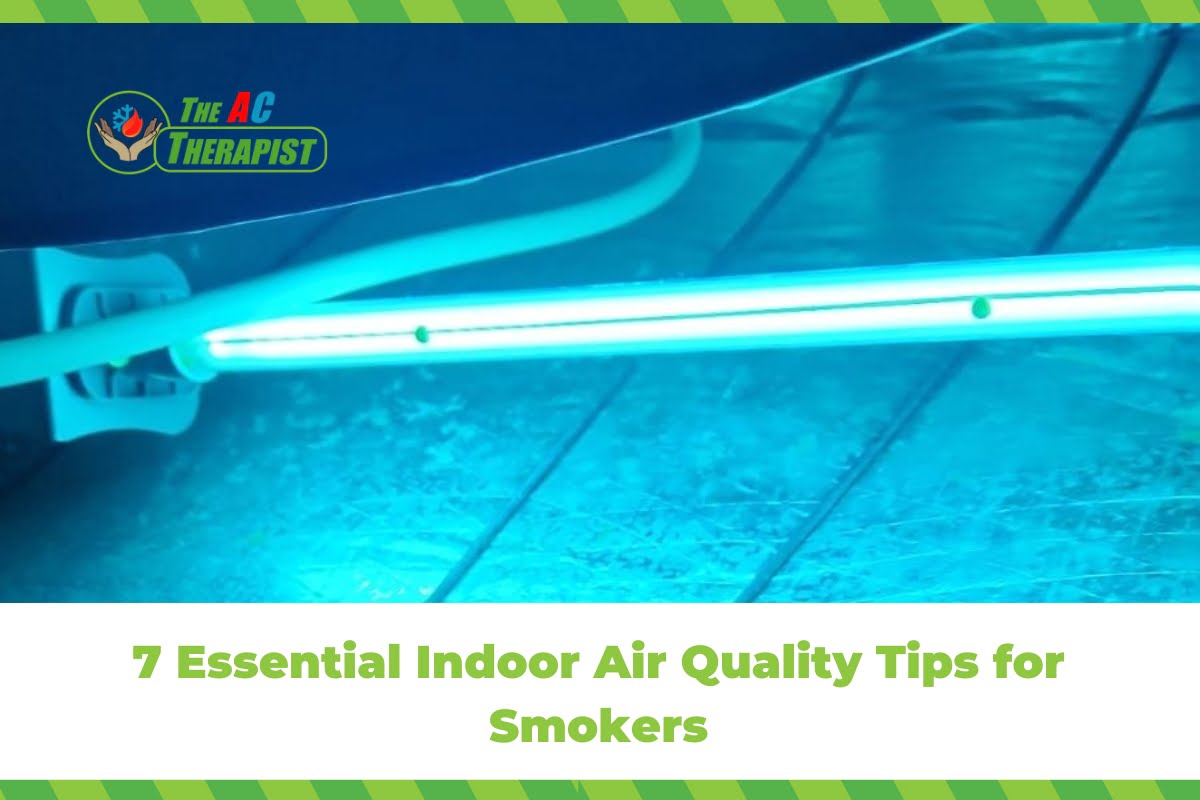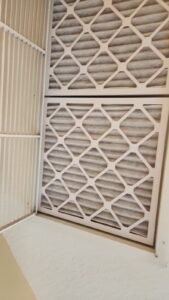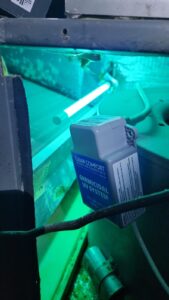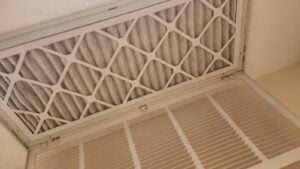7 Essential Indoor Air Quality Tips for Smokers
The intersection of smoking and indoor air quality is a critical area of concern for both health and environmental comfort within residential spaces. Smoking indoors can significantly degrade indoor air quality due to the myriad of chemicals and particulate matter released by cigarettes, cigars, and other tobacco products. Understanding this intersection is key to addressing the adverse effects and implementing strategies to mitigate the impact on individuals’ health and the overall indoor environment. Here, we delve into the complexities of this issue and explore solutions for maintaining a healthier indoor atmosphere, particularly emphasizing the role of HVAC maintenance and air purification strategies.
The Chemical Composition of Tobacco Smoke
Tobacco smoke contains over 7,000 chemicals, with hundreds known to be toxic and about 70 identified as carcinogens. When tobacco products are smoked indoors, these chemicals become part of the indoor air, clinging to surfaces, and being inhaled by occupants. Notable harmful substances in tobacco smoke include nicotine, tar, carbon monoxide, formaldehyde, and benzene. These substances can compromise the respiratory system, irritate the eyes and throat, and increase the risk of serious health issues, including cancer, heart disease, and respiratory illnesses.
Impact on Indoor Air Quality
The indoor smoking of tobacco products introduces a significant source of indoor air pollution. Particles from smoke can remain suspended in the air for extended periods, gradually settling on surfaces or being circulated by the home’s HVAC system. This not only affects the smoker but also exposes non-smokers to secondhand smoke, which can be just as harmful. Indoor air quality suffers as a result, with increased levels of particulate matter, unpleasant odors, and hazardous chemicals circulating within the living space.
Strategies for Mitigation
Improving indoor air quality in homes where smoking occurs involves several key strategies, primarily focusing on ventilation, filtration, and purification.
- Enhanced Ventilation: Increasing indoor and outdoor air exchange can help reduce the concentration of smoke particles and chemicals. This can be achieved through natural ventilation (opening windows and doors) and using exhaust fans to expel polluted air.
- High-Efficiency Air Filters: HVAC systems equipped with high-efficiency particulate air (HEPA) filters are more effective at capturing fine particles, including those from tobacco smoke. Replacing filters regularly and opting for filters with higher MERV (Minimum Efficiency Reporting Value) ratings can significantly improve particle capture, enhancing indoor air quality.
- Air Purifiers: Standalone air purifiers with HEPA filters and activated carbon can further reduce the presence of smoke particles and odors in indoor air. Placing air purifiers in areas where smoking occurs or in central living spaces can help minimize the spread of pollutants.
- Regular HVAC Maintenance: Routine maintenance of the HVAC system, including professional cleaning of ducts and vents, ensures optimal performance and prevents the recirculation of polluted air. Engaging with HVAC professionals, such as The AC Therapist, for regular inspections and maintenance can play a crucial role in maintaining a healthy indoor environment.
- Creating Smoking Areas: Designating specific areas for smoking, preferably outdoors or in well-ventilated spaces with direct exhaust to the outside, can help limit the spread of smoke throughout the home.
Understanding the Effects of Smoke on Indoor Air Quality
Understanding the effects of smoke on indoor air quality is crucial for protecting the health and comfort of indoor environments. Smoke, whether from cigarettes, cigars, wildfires, or burning materials, introduces a variety of harmful pollutants into the air, significantly degrading the quality of the indoor atmosphere. This section will delve into the composition of smoke, its impact on indoor air quality, and the importance of proactive measures to mitigate these effects.
Composition of Smoke
Smoke comprises a complex mixture of gases, fine particles (particulate matter, or PM), and volatile organic compounds (VOCs). The specific composition can vary based on the source of the smoke but often includes:
- Carbon Monoxide (CO): A colorless, odorless gas that can interfere with the body’s ability to transport oxygen.
- Particulate Matter (PM2.5 and PM10): Tiny particles that can penetrate deep into the lungs and even enter the bloodstream, causing a range of health issues.
- Nitrogen Dioxide (NO2): A gas that can irritate airways and exacerbate respiratory diseases.
- Volatile Organic Compounds (VOCs): Chemicals that can cause eye, nose, and throat irritation, difficulty breathing, and nausea. Some VOCs are known carcinogens.
- Polycyclic Aromatic Hydrocarbons (PAHs): Chemical compounds that are known to be carcinogenic.
Impact on Indoor Air Quality
The presence of smoke indoors can lead to several issues affecting air quality:
- Reduced Air Clarity and Visibility: The particulate matter in smoke scatters light, leading to reduced visibility and a general haze within indoor spaces.
- Health Risks: Exposure to smoke can cause respiratory issues, exacerbate asthma and allergies, and increase the risk of cardiovascular diseases. Long-term exposure to certain compounds in smoke can also increase the risk of cancer.
- Odors: Smoke can leave lingering odors that are difficult to remove, affecting the overall comfort and livability of indoor spaces.
- HVAC System Strain: Smoke particles can clog air filters and coat HVAC components, reducing efficiency and potentially leading to costly repairs.
Proactive Measures for Mitigation
To mitigate the effects of smoke on indoor air quality, several strategies can be employed:
- Improved Ventilation: Increasing the flow of outdoor air into a building can help dilute indoor pollutants. However, during outdoor smoke events (like wildfires), it’s important to keep windows and doors closed and rely on air conditioning with recirculated air.
- Air Filtration: Using air purifiers with HEPA filters can significantly reduce the concentration of particulate matter indoors. Additionally, ensuring that the HVAC system is equipped with high-efficiency air filters and that they are changed regularly can help maintain clean indoor air.
- Source Control: For indoor smoking, creating designated smoking areas with adequate ventilation or encouraging outdoor smoking can help prevent smoke from affecting the entire indoor environment.
- Regular Cleaning: Smoke particles settle on surfaces, so regular cleaning of floors, walls, and furniture is important to remove residues and prevent their re-circulation into the air.
- Professional HVAC Maintenance: Regular inspections and maintenance by HVAC professionals, such as The AC Therapist, ensure that the system is functioning efficiently and effectively filtering out smoke and other pollutants.
Tailored HVAC Maintenance Tips for Smokers
For smokers, maintaining indoor air quality requires a proactive approach, especially when it comes to HVAC system maintenance. Smoke from cigarettes, cigars, or pipes can significantly affect air quality, leaving harmful particles and odors that not only compromise health but also the efficiency and lifespan of HVAC systems. Here are tailored HVAC maintenance tips designed specifically for households with smokers, aimed at minimizing the impact of smoke and maintaining a healthier indoor environment.
1. Use High-Quality Air Filters
- Opt for Higher MERV Ratings: Choose air filters with a higher MERV (Minimum Efficiency Reporting Value) rating that can capture smaller particles, including smoke. Filters with MERV ratings of 13 or higher are more effective at trapping smoke particles and other fine pollutants.
- Regular Replacement: Smoke particles can clog filters faster than usual. Replace air filters more frequently than the standard recommendation of every 90 days; monthly replacements may be necessary in homes with heavy smokers.
2. Increase Ventilation
- Natural Ventilation: Whenever possible, open windows and doors to allow fresh air to circulate and dilute indoor pollutants. However, be mindful of outdoor air quality and avoid this during high pollution days.
- Mechanical Ventilation: Use exhaust fans in kitchens, bathrooms, and laundry areas to expel smoke and odors directly outside. Consider installing a whole-home ventilation system for continuous air exchange.
3. Incorporate Air Purifiers
- HEPA Filters: Utilize portable air purifiers with HEPA filters in areas where smoking occurs most frequently. HEPA filters can capture up to 99.97% of particles as small as 0.3 microns, including smoke particles.
- Activated Carbon Filters: Air purifiers with activated carbon can absorb smoke odors, providing an additional layer of air quality improvement.
4. Professional Duct Cleaning
- Routine Inspections: Have your HVAC ducts inspected annually for signs of smoke residue and blockages. Smoke particles and odors can accumulate in ductwork, affecting air quality and HVAC efficiency.
- Regular Cleaning: Schedule professional duct cleaning services to remove any buildup of smoke particles and residues. This can help ensure optimal airflow and prevent the recirculation of smoke throughout your home.
5. Maintain the Entire HVAC System
- Annual Maintenance: Engage with HVAC professionals like The AC Therapist for annual maintenance checks. These checks can identify and address any smoke-related damage or wear and tear, ensuring your system operates efficiently.
- UV Light Installation: Consider installing UV light purifiers in your HVAC system. UV lights can help neutralize smoke odors and reduce the presence of airborne pathogens.
6. Create Designated Smoking Areas
- Isolate Smoking Activities: If indoor smoking cannot be avoided, designate specific, well-ventilated areas for smoking. Ideally, these areas should have direct access to outdoor ventilation or exhaust fans to minimize the spread of smoke into other parts of the home.
7. Educate Household Members
- Awareness and Practices: Educate all household members about the importance of maintaining indoor air quality. Simple practices like smoking near open windows or using air purifiers can collectively contribute to a healthier indoor environment.
Ventilation Strategies to Combat Indoor Smoke for Improved Indoor Air Quality
When it comes to ensuring the health and comfort of your home, maintaining excellent indoor air quality is paramount, especially for households with smokers. Smoke from cigarettes, cigars, or any tobacco product can significantly compromise indoor air quality, leading to potential health risks and discomfort. Understanding effective ventilation strategies is crucial in combatting indoor smoke and preserving the air quality within your living spaces. The AC Therapist, a leader in HVAC services, provides expert advice and solutions tailored to tackle these challenges head-on.
Regular Maintenance: The Key to Sustained Air Quality
Regular maintenance is the cornerstone of sustaining high indoor air quality, especially in homes with smokers. The presence of smoke particles can significantly compromise the efficiency of HVAC systems and degrade the quality of air within the home. These particles not only settle on surfaces but also infiltrate HVAC systems, leading to potential health risks and system inefficiencies. Engaging in a disciplined approach to maintenance can mitigate these risks, ensuring that the air in your home remains clean and healthy. Here, we explore why regular maintenance is critical and how The AC Therapist can be your ally in maintaining optimal indoor air quality.
Understanding the Impact of Smoke on HVAC Systems
Smoke from cigarettes, cigars, or any tobacco products contains a mixture of various particles and gases that can be harmful to both health and property. When smoke permeates the air, its particles can clog HVAC filters, coat ductwork, and even affect the mechanical parts of the system. Over time, this buildup can reduce the system’s efficiency, leading to higher energy costs and decreased air quality. Regular maintenance becomes essential to prevent these outcomes and maintain a healthy living environment.
The Role of Regular HVAC Maintenance
Filter Replacement
The most basic yet crucial maintenance task is regularly replacing HVAC filters. For homes with smokers, The AC Therapist recommends more frequent changes than the standard recommendation, potentially as often as every month, depending on the level of smoke exposure. High-quality filters, particularly those with higher MERV ratings, are more effective at capturing fine particles like smoke, but they also fill up faster and thus require more frequent replacements.
Duct Cleaning and Inspection
Over time, smoke particles can accumulate in the ductwork of your HVAC system, affecting air flow and quality. Regular duct cleaning and inspection can remove these accumulations, ensuring that your system distributes clean air throughout your home. The AC Therapist provides professional duct cleaning services that not only remove smoke residue but also identify any potential issues within your ductwork, such as leaks or damage that can impact system efficiency and indoor air quality.
System Tune-ups
An HVAC system that is not running efficiently can contribute to poor indoor air quality. Regular tune-ups by a professional service like The AC Therapist can ensure that your system operates at peak efficiency. These tune-ups include checking refrigerant levels, inspecting electrical components, and cleaning the condenser and evaporator coils. Ensuring these components work correctly can significantly impact the system’s ability to improve indoor air quality.
Advanced Maintenance Solutions
Beyond standard maintenance practices, there are advanced solutions to consider, particularly for homes with smokers. The AC Therapist can install whole-home air purifiers and UV light sanitizers directly into your HVAC system. These systems work continuously to clean the air, significantly reducing the presence of smoke particles and other contaminants. Regular maintenance checks can ensure these systems function correctly, providing an additional layer of protection against indoor air pollution.
The AC Therapist: Your Partner in Indoor Air Quality Maintenance
At The AC Therapist, our team is passionately committed to enhancing the indoor air quality of every home, recognizing the particular challenges faced by households with smokers. The presence of smoke can severely degrade indoor environments, impacting not only comfort but also the health of all inhabitants. Our mission is rooted in the belief that everyone deserves to breathe clean, healthy air, which is why we’ve honed our expertise and resources to offer state-of-the-art solutions and bespoke maintenance plans. These are meticulously designed to tackle the nuisances of indoor smoke, elevating the air quality to ensure a wholesome living space for you and your family.
Understanding the multifaceted nature of indoor air quality management, we advocate for a holistic strategy that transcends basic cleaning rituals and filter replacements. Our approach is built on the integration of advanced air purification technologies, diligent HVAC system upkeep, and strategic enhancements to your home’s ventilation. This comprehensive methodology is aimed at arming your residence with the necessary defenses to effectively counteract the adverse effects of smoke.
Selecting the right air filters is a cornerstone of our strategy. We emphasize the importance of opting for filters with higher MERV ratings, which are adept at trapping finer particles, including those from smoke, thereby significantly improving the air that circulates within your home. However, our commitment to improving indoor air quality doesn’t stop at filtration. We’re proud to offer installation services for cutting-edge air purifiers and UV light systems, which work tirelessly to maintain your air at optimal cleanliness levels. Our meticulous inspections and maintenance routines underscore the vital role of regular care in warding off the detrimental impacts of smoke particles and other airborne contaminants on your HVAC system’s performance and your home’s overall air quality.
Recognizing the uniqueness of each home, we provide personalized consultations that delve deep into identifying the most effective air quality solutions tailored to meet your specific needs. Whether it’s executing professional duct cleaning to eradicate smoke residue or advocating for the adoption of whole-home ventilation systems that facilitate a constant exchange of indoor and outdoor air, our dedication is unwavering. We are committed to ensuring your home’s environment is not only healthier but more comfortable and enjoyable.
By choosing to partner with The AC Therapist, you’re entrusting your indoor air quality to a team that genuinely cares about fostering healthier living spaces. Our extensive knowledge and proactive stance on air quality maintenance are designed to offer you peace of mind, especially for homeowners grappling with the challenges posed by indoor smoking.
We are here to support you in achieving and sustaining the cleanest, freshest air possible. Whether you’re directly addressing the challenges of indoor smoke or aiming to enhance your home’s general air quality, we stand ready to deliver the innovative solutions and expert guidance needed for a healthier, happier living environment. Our goal is to ensure that your home becomes a sanctuary of comfort and health, a place where clean air contributes to the well-being and satisfaction of everyone under your roof.
Together, we can embark on a journey toward transforming your home into the ultimate haven of clean air and comfort. With The AC Therapist by your side, the dream of a healthier, smoke-free living space is not just attainable—it’s within reach. Let us be your guide and partner in navigating the path to superior indoor air quality, where every breath is a testament to our commitment and expertise.












